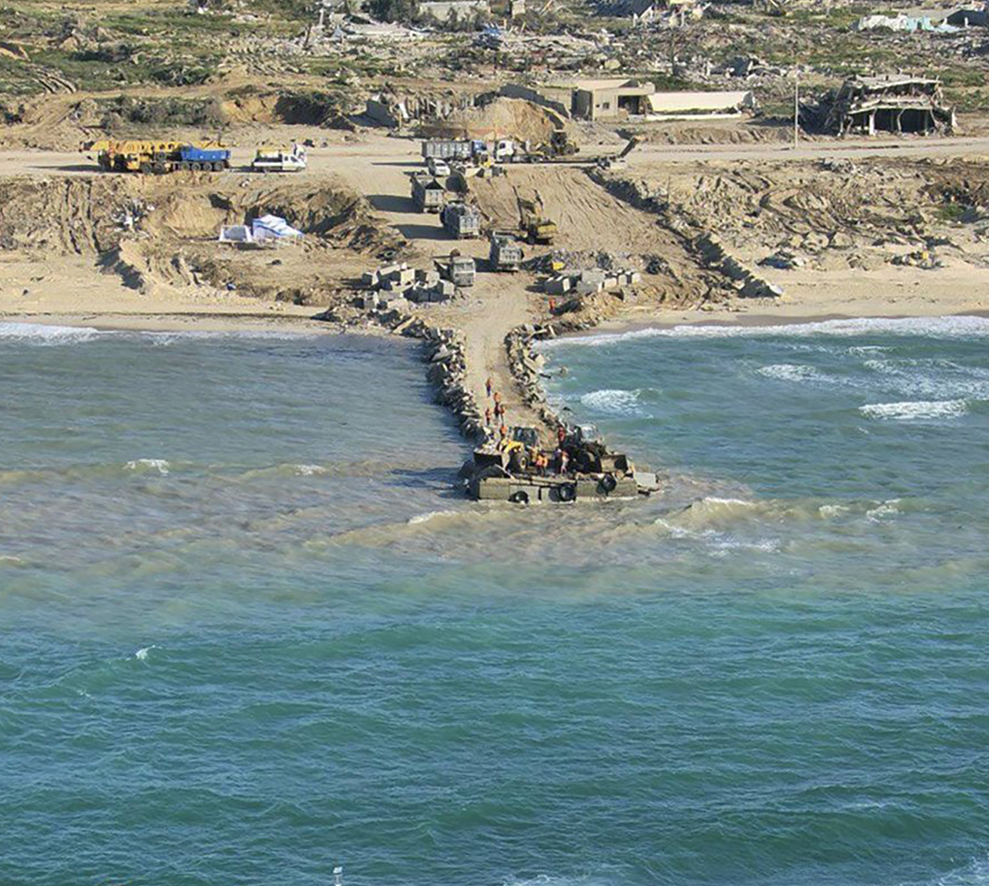Introduction
On June 8, 2022, the Policy Analysis Team at Strategiecs, published a Position Assessment Paper entitled "The Government of Impossible Balances: Scenarios and Policies". The paper addressed the policies of the Israeli government in two cases: the failure to pass no-confidence resolutions, or dissolute the Israeli Knesset on the one hand, or the success in passing those resolution drafts, on the other hand.
One of the most notable findings of such paper is that: should the government remain in power, it will be in a "state of paralysis", because of its inability to pass new legislation as per Knesset Law. This may trigger the crisis again when the first resolution draft is introduced by the government, and may later lead to the dissolution of the Knesset as a result of escalating disputes within the government coalition, and the formation of a transitional government headed by Yair Lapid.
The paper also highlighted the fragility of the government coalition, and the difficult task facing its president, Bennett, in managing the impossible balances that carry the risk of collapse at any moment, sometimes unexpectedly. In any case, it all about balances in the favor the right-wing forces regarding the issues of "Reducing the Conflict", the continuation of settlement, and attacks on the Al-Aqsa Mosque, in return for some improvements in the daily living conditions of the Palestinians in the West Bank and Gaza, and little more for Palestinian society within Israel. All of which will not be a milestone in the course of the political settlement, which is missing for years.
The Decision to Dissolve Knesset
An episode of previous context, covered by the paper "The Government of Impossible Balances", was the decision by the Israeli Prime Minister, Naftali Bennett, on the evening of June 20, 2022, to dissolute the Knesset and head to early parliamentary elections. Bennett failed to pass a law (Extension of Judicial Procedures in The West Bank) known as the Law (Judea and Samaria) in Israeli circles, ensuing some members of the government coalition voted against passing that law, including Meretz Knesset member; Gida Zabi, Knesset member of the Unified Arab List; Mazen Ghannaim, and a member of the splinter Knesset member Idit Silman of Yamina Party. In addition to failing to pass a vote on the appointment of new Minister of Religion, Mtan Kahane, from Bennett's Right party.
.jpg)
Bennett's failure to pass the said Law is an indicator, given the significance of such Law to Jewish settlers in the West Bank, as Bennett and his party as a "Yamina" are of settler parties. The Law, imposed by the Israeli government on the West Bank since 1967, states applying the Israeli civil Law to settlers, while applying the Israeli Military Law to Palestinians. This Law is extended via a Knesset legislation every five years. It was voted down by 58 votes to 52 votes in the Knesset, after the opposition pledged to vote against any law put forward by the government coalition.
The success of the opposition, led by Benjamin Netanyahu, in overturning the Law, brought the government coalition to the height of its crisis, and prompted Bennett to take the decision to put forward the draft dissolution of the Knesset as an anticipatory step. Although it was actually the opposition that forced Bennett to make that decision, but the Knesset dissolution draft appears to be the last lifeline of the Bent coalition, even if that lifeline is temporary.
The Knesset dissolution draft resolution is expected to be put forward within days. Once approved, the Israeli government will become a transitional government headed by Yair Lapid, while Bennett would be in the post of alternative prime minister, while remaining in charge of the Iranian file, until the end of October 2022, the date of the new elections, the fifth of a kind in less than four years. Thus, Bennett’s government will be the shortest government in Israel's history since its inception.
Anticipatory Step
Bennett’s step, in putting forward a draft resolution to dissolute Knesset, came in a proactive context, and in order to achieve two main objectives for the Prime Minister and his party. Such objectives are:
First: Blocking the opposition and Netanyahu to submit no-confidence decisions against the government coalition, may make Netanyahu able to form a new right-wing government, especially after growing defections in Yamina Party. In addition to the fear that some parties leaving the coalition, the matter which increased the risk after the threat of Knesset member (Nir Auerbach) to withdraw from the coalition, and his efforts to postpone the vote on the dissolution of the Knesset to try to exhaust contacts with Likud, in order to form an alternative government without elections, as quoted by "Israel Today" newspaper on the 22nd of June 2022.
Second: the keenness to pass the Law (Extension of Judicial Proceedings in the West Bank). During a joint press conference with Lapid, Bennett, where he announced his decision to submit the draft dissolution of the Knesset and go to early elections, indicated that he made that decision "after meeting with the security and legal communities, which in turn made it clear to him that the State of Israel will enter into a state of total chaos if the emergency regulations in the West Bank are not extended until the end of this month". The solution is, "If the Knesset is dissolute by the end of this month, simultaneously with the expiry of emergency regulations, then it will be automatically extended," as explained by the Chancellor Israeli Government Judge, Boutros-Ghali Bharav-Miara, during a meeting with Bennett.
The second objective is necessarily related to Bennett's and his party's commitment to settlers in particular, and right-wing voters in Israel in general. Bennet is the former Director-General of the West Bank Settlements Council, and his Right Party is one of the main Jewish settler parties.
Therefore, Bennett's move to dissolute the Knesset and hold early elections, under the pretext of ensuring the passage of a law (Extending Judicial Proceedings in the West Bank) is an opportunity to renew the confidence of settlers and the general right-wing electorate in the upcoming elections, for the failure to pass the law -the matter that will not take place- means stripping nearly half a million settlers in the West Bank -with the exception of Jerusalem- from the rights enjoyed by the rest of The Israelis, including voting rights.
Last-Minute Options
The choice of Knesset dissolution and head to early elections is the most present choice so far. Should such decision be achieved, and if an interim government led by the Minister of Foreign Affairs, Yair Lapid, is forme, then such government will not be more able than the previous governments regarding creating new policies concerning the Palestinian-Israeli conflict, except within a tiny margin. This is due to the virtue of the transitional period of the government, which, for Lapid, is an opportunity to enhance his partisan power and increase his chances in the upcoming elections. Lapid will remain under the same determinants created by the ruling coalition nature, as it is in case of the current prime minister Naftali Bennett, in spite of Lapid's latest declarations, where he said that he will not wait until new elections would start in order for him to begin addressing the challenges that are facing Israel, referring to his endeavor "to address the high cost of living; involve in the campaign against Iran, Hamas, and Hezbollah, and face the powers which are threatening turning Israel into a non-democratic state".
.jpg)
Last-minute options include two scenarios that may make the Knesset's avoid the decision of dissolution, despite that is unlikely. These two options are:
First: The scenario of Knesset member, Nir Auerbach's, withdrawal from the coalition, the success of his efforts to postpone the vote on the dissolution of the Knesset, and his agreement with the Likud party to form an alternative government led by Netanyahu without elections, especially if the far-right Yisrael Beiteinu party, headed by Israeli Finance Minister Avigdor Lieberman (7 Knesset seats) would withdraw from the coalition, or the withdrawal of the right-wing New Hope Party, headed by the Israeli Minister of Justice, who is a splinter from the Likud party Gideon Saar (6 seats in the Knesset), or the withdrawal of both parties together from the coalition to join a new right-wing coalition led by Netanyahu.
Second: the scenario of forming a "government of national unity" from most Israeli parties, especially the right and center parties. This scenario means that Israel is going to war, because the formation of such a government happens during existential crises facing Israel, as happened on the eve of the War of June 1967 when a government of "national unity" was formed with the participation of all Israeli parties, in its various tendencies, to face the prospects of war with Arab states.
It is the option of war here that will shape the next Israeli government, not the other way around, as a transitional Israeli government, leading a fragile coalition, cannot go for that option alone. Until now, there is no indication that the region has reached that option.
What may Come Next?
All recent developments in the Israeli political arena came few weeks before the U.S. President Joe Biden's upcoming visit to Israel and the region, which the Israeli government high hopes are on it to help in enhancing the regional security relations against Iran in particular, in light of an Israeli proposal that includes that the U.S. is to be responsible for establishing frameworks for communication between Israel and Arab countries, in order to "have a significant impact on Iran and other things," as noted by the Israeli news website "Walla".
However, the crisis of the government coalition in Israel will cast a shadow over that visit, and "exceptional" results are unlikely to be achieved in the major thorny files in the region, notably the Iranian nuclear file, as well as the files of political settlement with the Palestinian Authority, or the bilateral relations between Israel on the one hand, Jordan and Egypt on the other hand. Little progress has been made in the context of those files and relations over the past years, even under a relatively stable right-wing Israeli government headed by Netanyahu, and republican rule Donald Trump's right-wing presidency in the United States of America. Therefore, no achievement may be realized under a turmoiled Israeli transitional government, and a democratic U.S. administration that is described by many as unwilling to take the initiative.
Keep in touch
In-depth analyses delivered weekly.












